President calls on EU "to keep its word"
President Boris Tadić said in Brussels on Tuesday that Serbia had kept its word by arresting Ratko Mladić and that now the European Union should do the same.
Tuesday, 07.06.2011.
09:27

President Boris Tadic said in Brussels on Tuesday that Serbia had kept its word by arresting Ratko Mladic and that now the European Union should do the same. Addressing a policy briefing entitled, "Serbia: en route to the EU", at the European Policy Center in Brussels on Tuesday, Tadic said "it was now time for everyone to be honest". President calls on EU "to keep its word" "s the arrest of Ratko Mladic was Serbia's moral obligation, but also a condition for European integration, the country can be free to look the EU straight in the eyes and say that it did what it should. Can the EU now do the same?” he asked. Tadic added that Serbia was ready to begin the pre-accession negotiations with the EU and that the EU should use the opportunity, which was now bigger than ever. He said Serbia was ready and had the capacity to play a constructive and vital role in resolving all regional problems, including the Kosovo issue, and that only a solution supported by everyone could be sustainable. Serbs and Albanians have to reconcile and that is possible, Tadic said, adding that Serbia is ready to try out all possibilities. He said he was encouraged by the progress achieved in the Belgrade-Pristina talks so far and noted that Serbia was seeking lasting solutions as opposed to some who only wanted to have the issue resolved as quickly as possible. Previously, Tadic stated that Serbia would neither explicitly nor implicitly accept Kosovo's declaration of independence. "This is the red line we will not cross under any conditions," Tadic said after his talks with European Council President Herman van Rompuy. "Serbia, its administration, the government, and I as president will neither implicitly nor explicitly recognize Kosovo," Tadic said. Ethnic Albanians in Kosovo unilaterally proclaimed independence in early 2008. According to Tadic, there are countries "that would like to put Serbia in a situation where it would have to do something more to get the European Union (EU) membership candidacy status and the date of the beginning of the accession negotiations". "That will not happen," he said. "We will not do that and we will not cross the red line and I discussed the matter with EU High Representative for Foreign Affairs and Security Policy Catherine Ashton and van Rompuy," the Serbian president underlined. He said that Belgrade's dialog with Pristina, i.e., the Kosovo Albanian authorities, was part of the efforts to enter the EU without a new conflict to burden the community of European countries. "We are fighting for our interests by using all legal means available, in a way that presents Serbia as a reliable partner and shows that it will do what it said it would," Tadic added. The Serbian president said Belgrade was ready to resolve daily life problems of people in Kosovo through talks with Pristina, pointing out that a solution could be found if both sides had "a flexible approach to the dialog". Tadic in Brussels (Beta/AP)
President calls on EU "to keep its word"
"s the arrest of Ratko Mladić was Serbia's moral obligation, but also a condition for European integration, the country can be free to look the EU straight in the eyes and say that it did what it should. Can the EU now do the same?” he asked.Tadić added that Serbia was ready to begin the pre-accession negotiations with the EU and that the EU should use the opportunity, which was now bigger than ever.
He said Serbia was ready and had the capacity to play a constructive and vital role in resolving all regional problems, including the Kosovo issue, and that only a solution supported by everyone could be sustainable.
Serbs and Albanians have to reconcile and that is possible, Tadić said, adding that Serbia is ready to try out all possibilities.
He said he was encouraged by the progress achieved in the Belgrade-Priština talks so far and noted that Serbia was seeking lasting solutions as opposed to some who only wanted to have the issue resolved as quickly as possible.
Previously, Tadić stated that Serbia would neither explicitly nor implicitly accept Kosovo's declaration of independence.
"This is the red line we will not cross under any conditions," Tadić said after his talks with European Council President Herman van Rompuy.
"Serbia, its administration, the government, and I as president will neither implicitly nor explicitly recognize Kosovo," Tadić said.
Ethnic Albanians in Kosovo unilaterally proclaimed independence in early 2008.
According to Tadić, there are countries "that would like to put Serbia in a situation where it would have to do something more to get the European Union (EU) membership candidacy status and the date of the beginning of the accession negotiations".
"That will not happen," he said.
"We will not do that and we will not cross the red line and I discussed the matter with EU High Representative for Foreign Affairs and Security Policy Catherine Ashton and van Rompuy," the Serbian president underlined.
He said that Belgrade's dialog with Priština, i.e., the Kosovo Albanian authorities, was part of the efforts to enter the EU without a new conflict to burden the community of European countries.
"We are fighting for our interests by using all legal means available, in a way that presents Serbia as a reliable partner and shows that it will do what it said it would," Tadić added.
The Serbian president said Belgrade was ready to resolve daily life problems of people in Kosovo through talks with Priština, pointing out that a solution could be found if both sides had "a flexible approach to the dialog".










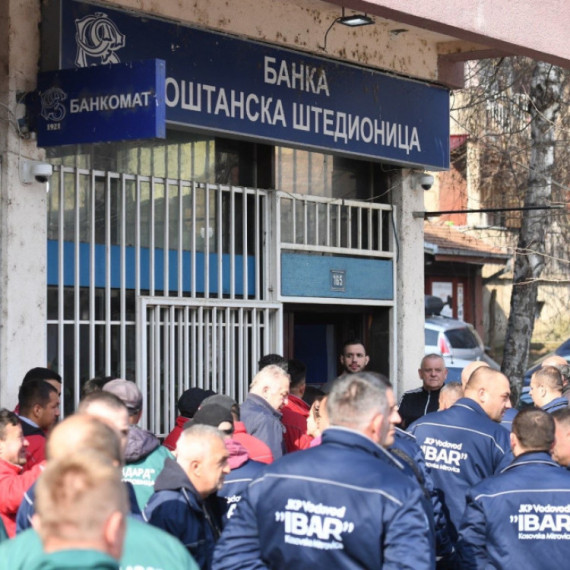
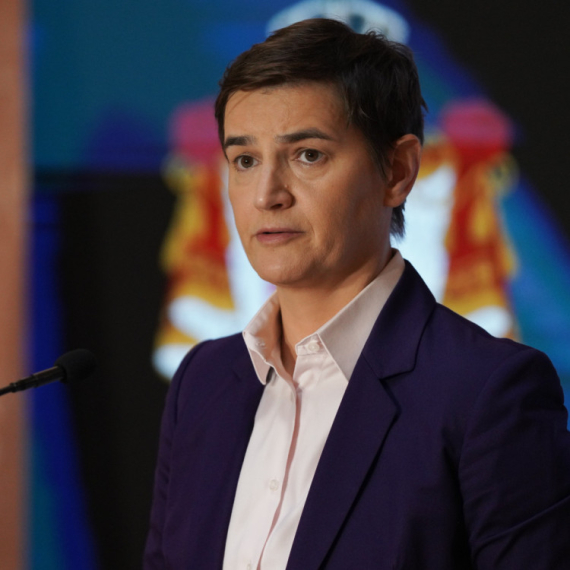







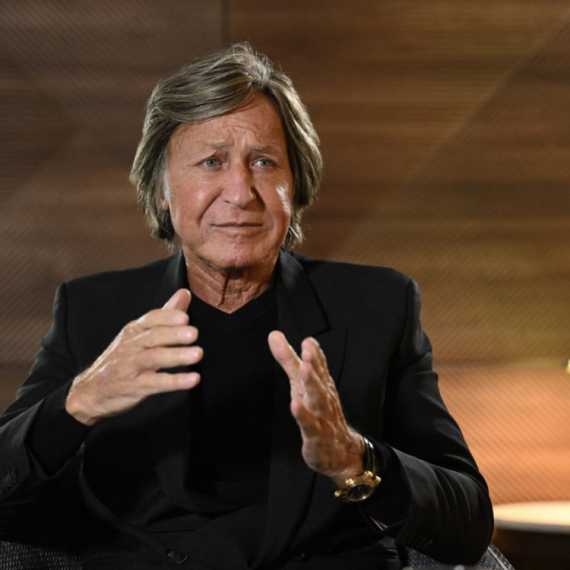

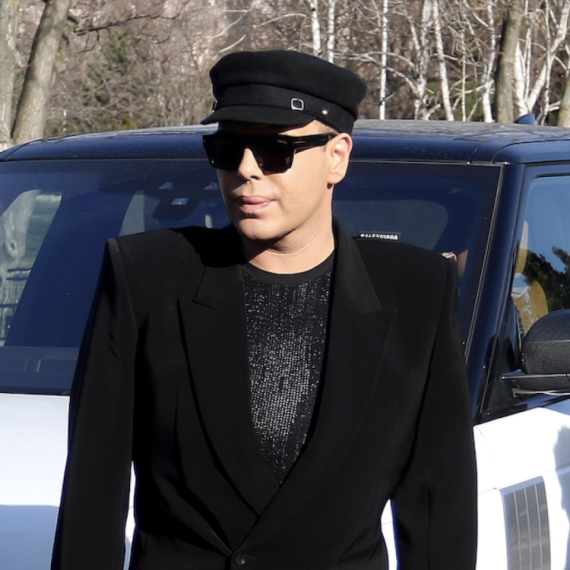





























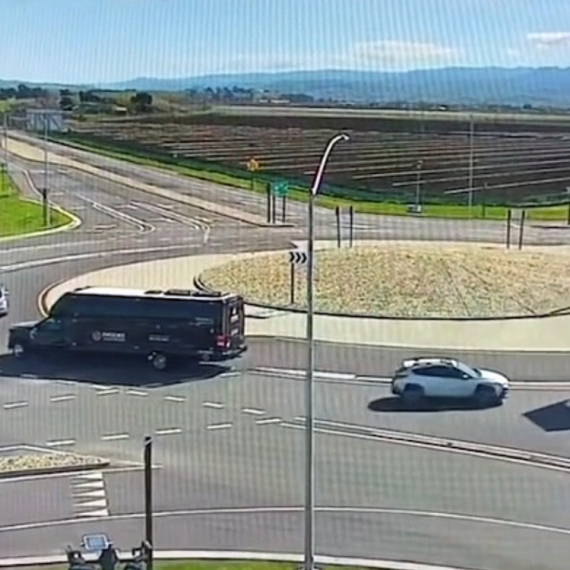

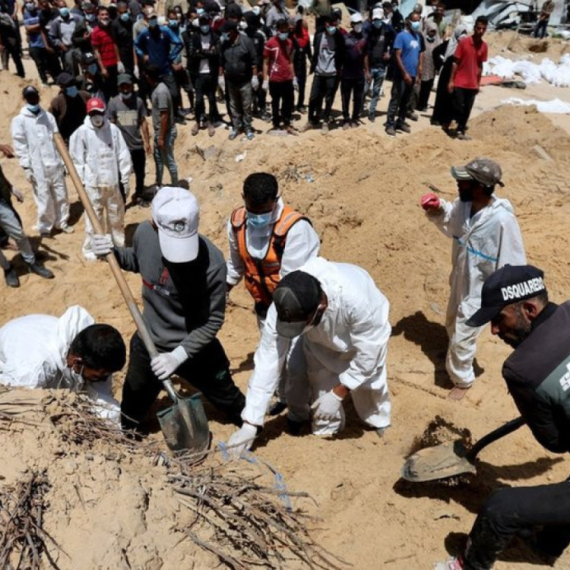




Komentari 46
Pogledaj komentare